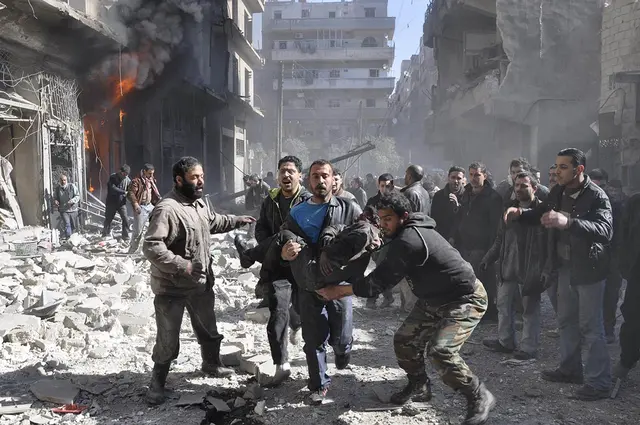Senior Advisor to the UN Special Envoy for Syria, Jan Egeland, said Thursday the upsurge in violence in the war-torn country was not only threatening the lives of countless civilians, but also jeopardizing future peace talks seeking to broker a political end to the five-year crisis.
"The stakes are so incredibly high because so many civilian lives are at stake, so many humanitarian health and relief workers are being bombed, killed and maimed at the moment that the lifeline to millions of people is now at stake," he explained after the weekly humanitarian task force meeting here.
Egeland warned that if the level of violence continued unabated in areas such as Aleppo and Homs, the unprecedented humanitarian headway made since the beginning of the year could be lost.
To date, 778,175 civilians living in besieged and hard-to-reach areas have been provided with multi-sectorial assistance through inter-agency operations since the beginning of the year.
For the first time, over 50 percent of those living in besieged areas have been relieved, due in large part to the 15 airdrops carried out in Deir ez-Zor, an eastern Syrian city besieged by the Islamic State since March 2014.
Despite such large-scale relief efforts, most of which have been made possible by a cessation of hostilities agreement which is now in tatters, Egeland called upon world and regional powers to increase diplomatic efforts to get the situation back on track.
"The appeal of UN Special Envoy for Syria, Staffan de Mistura, to the United States, Russia and other International Syria Support Group powers is you did it once, you can do it again," he said.
The Norwegian diplomat expected to receive answers Thursday from the Syrian government regarding permits which would enable aid convoys to reach 35 locations where some 905,000 Syrians are struggling to survive.
"May could still be our best month... but it also could be a catastrophic month. It all depends on what happens in the next hours, days, and weeks," he said, adding the provision of medical aid and assistance must be drastically improved.
(APD)
 简体中文
简体中文





